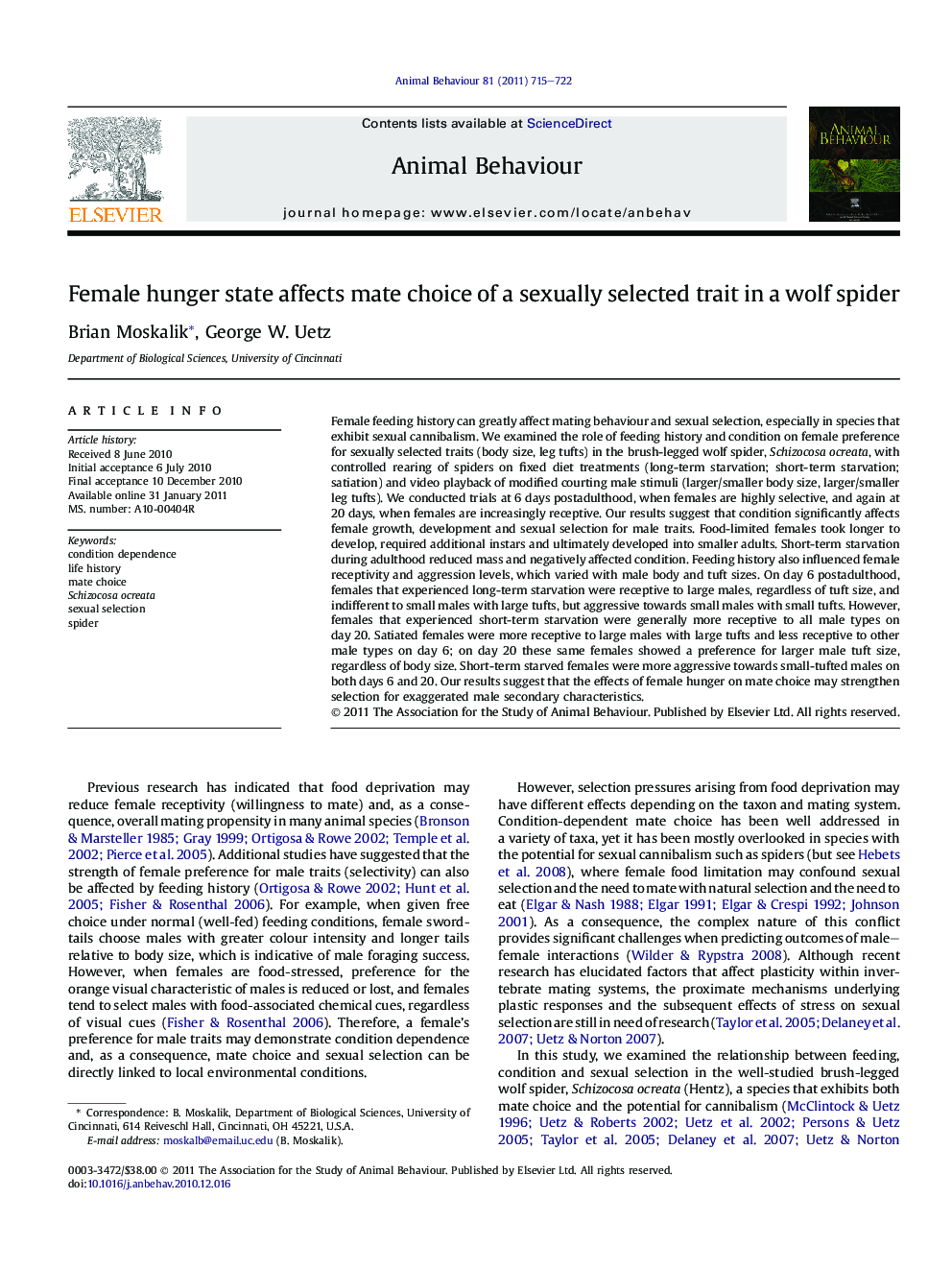| Article ID | Journal | Published Year | Pages | File Type |
|---|---|---|---|---|
| 2417078 | Animal Behaviour | 2011 | 8 Pages |
Female feeding history can greatly affect mating behaviour and sexual selection, especially in species that exhibit sexual cannibalism. We examined the role of feeding history and condition on female preference for sexually selected traits (body size, leg tufts) in the brush-legged wolf spider, Schizocosa ocreata, with controlled rearing of spiders on fixed diet treatments (long-term starvation; short-term starvation; satiation) and video playback of modified courting male stimuli (larger/smaller body size, larger/smaller leg tufts). We conducted trials at 6 days postadulthood, when females are highly selective, and again at 20 days, when females are increasingly receptive. Our results suggest that condition significantly affects female growth, development and sexual selection for male traits. Food-limited females took longer to develop, required additional instars and ultimately developed into smaller adults. Short-term starvation during adulthood reduced mass and negatively affected condition. Feeding history also influenced female receptivity and aggression levels, which varied with male body and tuft sizes. On day 6 postadulthood, females that experienced long-term starvation were receptive to large males, regardless of tuft size, and indifferent to small males with large tufts, but aggressive towards small males with small tufts. However, females that experienced short-term starvation were generally more receptive to all male types on day 20. Satiated females were more receptive to large males with large tufts and less receptive to other male types on day 6; on day 20 these same females showed a preference for larger male tuft size, regardless of body size. Short-term starved females were more aggressive towards small-tufted males on both days 6 and 20. Our results suggest that the effects of female hunger on mate choice may strengthen selection for exaggerated male secondary characteristics.
